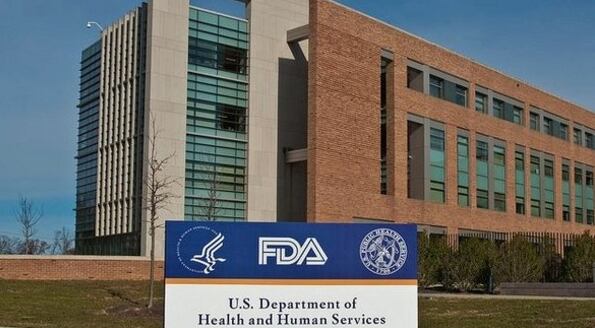At the Organic & Natural Health Association we rely on our operating tenets to assess progress for ourselves and the industry at large. Is there sufficient transparency and traceability to benefit consumers, and protect them from harm? Are they being served by a tangible commitment to continue quality improvement in the supply chain? Does that supply chain afford them increased access to higher quality products? And, at the end of December 2019, can we conclude our efforts – individual, company-wide and as an industry – have served to improve the health of our planet and as a result the people themselves?
Even the efforts of the best companies and well-intentioned trade associations can be derailed by our Achilles heel: the proliferation of bad products flooding the market in areas virtually impossible to monitor. Little has been done to stymie sales of adulterated and illegal products at gas stations, convenience stores and on the internet. More detrimental to our cause is the incessant news coverage on research studies that seemingly prove dietary supplements have no impact on health outcomes. While we continue to progress in our research initiatives, the media-fed image of our industry as the wild, wild west is now fully fueled by the sales of bogus CBD products.
We have had our moments in this 25th anniversary year of DSHEA. There were lengthy discussions at FDA hearings on requiring product registration. Debate on new dietary ingredients guidance and whether a NDI can solve problems or create more, given issues around intellectual property. A persistent rallying cry from the industry for increased enforcement of existing law, though our offers to advocate on behalf of FDA for more funds were met with silence. Then there was the CBD hearing. Thus far, we have failed to create a unified front that could have staved off the bad actors and shone a light on the standards our quality companies adhere to.
Now we must move forward. Here are other, lesser-known topics with far reaching impact to address.
GE and the Supply Chain
Organic & Natural Health stood strong against regulations that enable nondisclosure of genetically engineered ingredients. The new GE is the quickest path to enabling synthetic biology, and a rising number of ingredients grown in environmentally toxic vats of GMO yeast, find their way into our supply chain. This is way bigger than “Franken fish” and the Impossible Burger. Factory derived ingredients, including flavors, astaxanthin, and cannabis, are already on the market. No labeling is required, and testing for these ingredients is still in a nascent stage. The public demands to know what is in their products. Industry must support all efforts for transparency, including new testing methods. For example, HRI Labs has a new protocol for measuring differentiation of micronutrients that will point to synthetic ingredients. Brands must demand source documentation that clearly identifies the origins of ingredients. The integrity of the supply chain is at stake. We worked for six months to acquire a synthetic ingredient unsuccessfully. I would wonder what they are hoping to hide, except I believe I already know.
Regenerative, Biodynamic join Organic
Organic is under fire, suffering from an erosion of standards (approval of hydroponics) and the dumping of imposters into the domestic and international supply chain. Regenerative and biodynamic point are our future. Again, consumer voices are demanding more from us, including products produced using regenerative agriculture. Organic & Natural Health is educating Congress about how grass-fed meat is good for the family farmer, the economy, and perhaps most importantly, the soil. Consumers who love watching their supplement company manufacture products on a live stream now want to see the farms those ingredients come from. There will be a day when the sale of CAFO derived collagen plummets.
Prove It Works
Nothing was more enlightening in our FDA meetings regarding our vitamin D health claim petition than FDA’s declaration “there is no room for logic in science.” They concluded, while vitamin D is a food source (barely in my opinion), serum levels of vitamin D are not, and therefore cannot be characterized as a substance to decrease the risk of preterm births. We took advantage of their denial of a health claim to create a new structure/function claim.
The science we provided FDA was solid; the most compelling being derived from nutrient field trials, not RCTs. RCT research is the most commonly used tool to discredit the effectiveness of nutrients. There are inherent flaws in virtually every RCT and the meta analyses of RCTs. Unlike pharmacologic intervention, that can be measured with safety and efficacy standards since you are introducing a foreign object (drug) into the body, nutrients exist in the body. They are consumed through food and supplementation, and have complex, healthy interactions that warrant additional study. Virtually all nutrient RCTs are focused on the assigned study dose, overlooking the level of the nutrient in your body. The appropriate questions are: For what are they effective, and at what level?
Working with GrassrootsHealth we document the effectiveness of nutritional supplementation in a way that empowers individual consumers, using nutrient field trials with thousands of participants. Our omega-3 study showed only 19% of participants had an omega-3 Index of 8% or higher. Efforts are now underway to create of a dose response calculator. Magnesium is next. This research enables consumers to track their nutrient level in relation to health outcomes by tracking the dosage required to ellicit an effective response. We are all well-served by this model.
Conclusion
I’ve been asked multiple times about what’s next and the prospect of DSHEA 2.0. We must redefine our community and bridge the interests of our allies in agriculture and environmental sectors. Only by joining forces with those who seek transformation of our disease-based system to one rooted in the health of planet and people can we be effective change agents.




